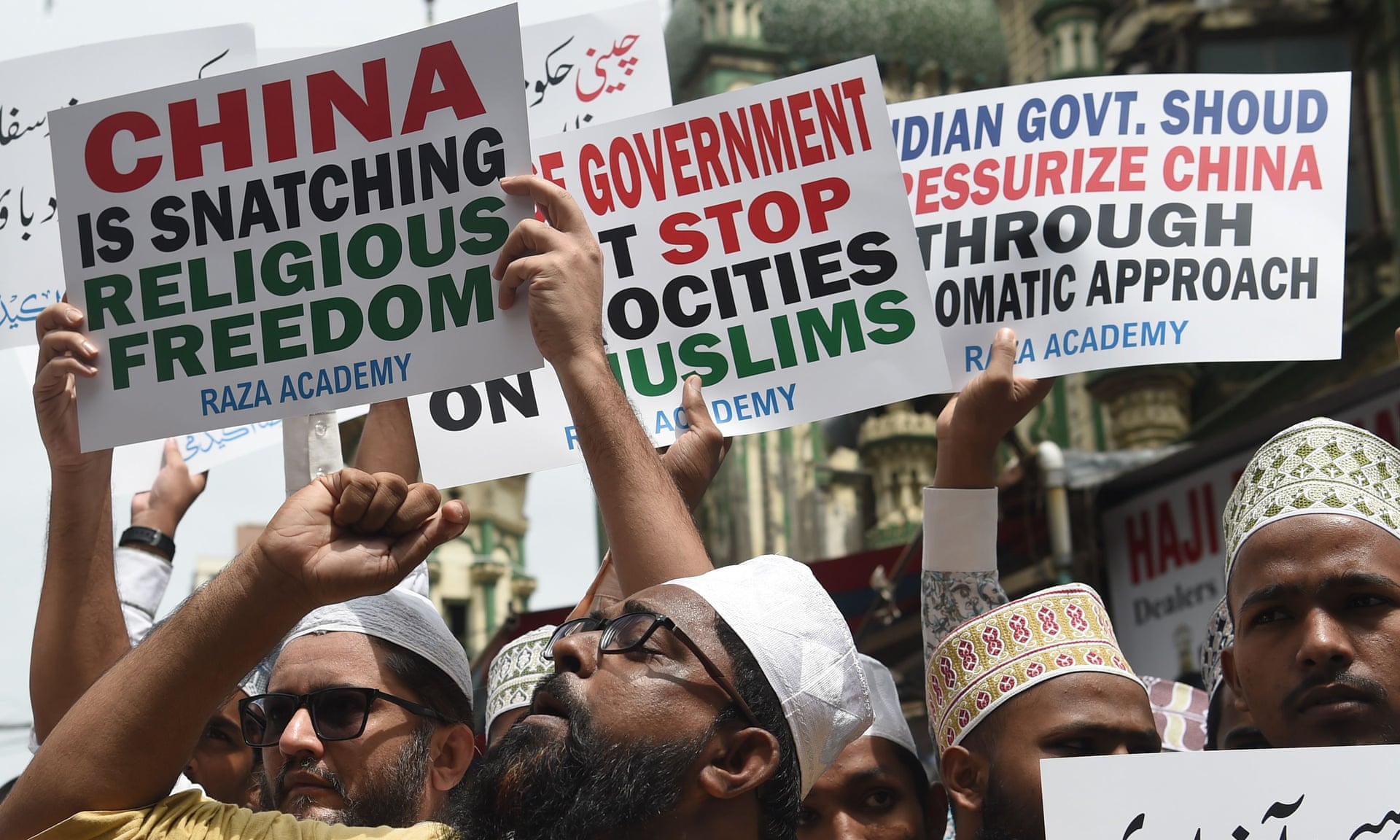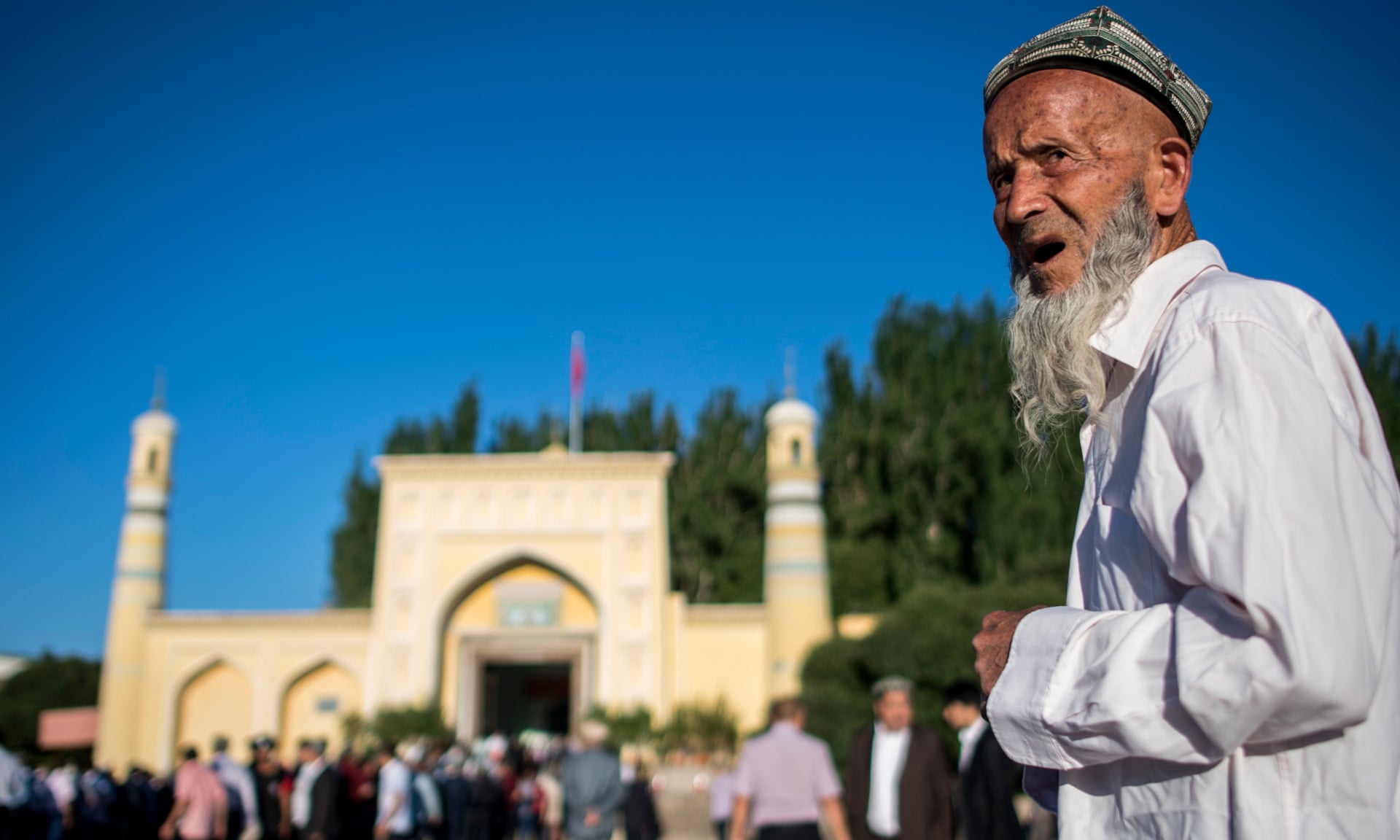By Lily Kuo in Beijing
A protest against the Chinese government’s detention of Muslim minorities in September in India.
China’s human rights record will be examined on Tuesday at a UN event expected to focus on Beijing’s treatment of ethnic minorities, detention of activists and suppression of religious and civil freedoms.
The process, known as a universal periodic review (UPR), takes place every five years for each UN member state.
The country under review is meant to demonstrate how it has followed previous recommendations as well as answer questions from states, NGOs and others.
Advance questions from member states have focused on China’s treatment of ethnic minorities in East Turkestan, where an estimated 1 million ethnic Uighurs and others are detained in a network of internment camps.
Others raised questions about press freedoms in Hong Kong, where a journalist with the Financial Times was in effect expelled; the detention of Swedish bookseller Gui Minhai; and the detention of human rights defenders such as the lawyer Wang Quanzhang, the Uighur activist Ilham Tohti, and the dissident Huang Qi, who is believed to be suffering from chronic kidney disease, an accumulation of fluid in the brain, and heart disease.
On Monday, a group of 14 NGOs called on China to release Huang on the basis that there was an immediate threat to his life.
Advance questions from member states have focused on China’s treatment of ethnic minorities in East Turkestan, where an estimated 1 million ethnic Uighurs and others are detained in a network of internment camps.
Others raised questions about press freedoms in Hong Kong, where a journalist with the Financial Times was in effect expelled; the detention of Swedish bookseller Gui Minhai; and the detention of human rights defenders such as the lawyer Wang Quanzhang, the Uighur activist Ilham Tohti, and the dissident Huang Qi, who is believed to be suffering from chronic kidney disease, an accumulation of fluid in the brain, and heart disease.
On Monday, a group of 14 NGOs called on China to release Huang on the basis that there was an immediate threat to his life.
According to the statement, authorities have repeatedly rejected applications for release on medical bail, allowing his health to deteriorate.
Critics say this year’s review highlights how China’s human rights record has deteriorated under the leadership of Xi Jinping.
Critics say this year’s review highlights how China’s human rights record has deteriorated under the leadership of Xi Jinping.
“What is most telling is that we are asking the same questions as we head into China’s third review. That some of the same issues are still coming up is a powerful statement of how little progress China has made,” said Sophie Richardson, the China director at Human Rights Watch.
Rights activists say China has sought to suppress the voices of dissidents at events on the global stage such as this.
Rights activists say China has sought to suppress the voices of dissidents at events on the global stage such as this.
Fewer Chinese activists and NGOs are participating in the review process than in years past, in what some call the “Cao Shunli effect”, after the activist who was detained for participating in China’s UPR in 2009 and 2013.
Cao died in a military hospital in 2014 after being denied treatment.
“All UN member states have an equal opportunity to press China on its egregious human rights record, and they shouldn’t waste it,” said John Fisher, the Geneva director at Human Rights Watch.
“Chinese activists have been imprisoned, tortured, and fatally mistreated for the chance to challenge Beijing over its human rights record.”
“All UN member states have an equal opportunity to press China on its egregious human rights record, and they shouldn’t waste it,” said John Fisher, the Geneva director at Human Rights Watch.
“Chinese activists have been imprisoned, tortured, and fatally mistreated for the chance to challenge Beijing over its human rights record.”

